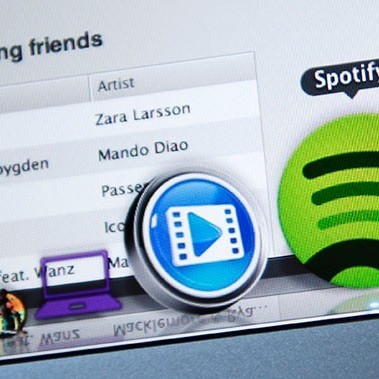Music Streaming Service - Tumblr Posts
In June, David Lowery, singer-guitarist of Cracker and Camper Van Beethoven, posted part of a royalty statement to his blog The Trichordist. Cracker's song "Low," he revealed, had been played 1,159,000 times on Pandora in three months; Lowery, in his capacity as the song’s co-composer, was paid $16.89. For 116,280 plays on Spotify, Lowery got $12.05. Meanwhile, "Low" racked up only 18,797 plays on AM and FM radio stations during the same quarter. But for far fewer spins, Lowery received far more money: $1,373.78, to be exact.
Just last month, Thom Yorke of Radiohead and producer Nigel Godrich pulled their Atoms for Peace project off of Spotify, citing similar inequities in how music-streaming services pay artists. "Make no mistake new artists you discover on #Spotify will [not] get paid,” Yorke declared on Twitter. “[M]eanwhile shareholders will shortly [be] rolling in it. Simples."
Maybe. Or maybe it's not quite as simples as that. The image of wide-eyed young musicians having their lunches eaten by rapacious corporations is pretty compelling, and the ongoing collapse of the record business makes it look even scarier. The week ending July 28 had the lowest total album sales documented since Billboard started using Soundscan to track sales in 1991.
But it's also worth considering who's paying whom when music gets streamed, and how that might change. Whenever you read a shockingly low number and worry about the fate of your favorite band, it's worth keeping three things in mind.
1) "The music business" is not the same thing as "the recorded music business"—especially for musicians. A recent survey by the Future of Music Coalition found that, on average, 6 percent of musicians' income comes from sound recordings. That's not an insignificant amount, but it's also a lot less than what nonmusicians might guess. (And, although there isn't reliable data from the pre-Napster era, anecdotal evidence suggests that the percentage has never been much higher.) Recordings are how listeners generally spend the most time experiencing music, but not how we spend the most money experiencing music. In practice, recordings mostly serve as promotion for the other ways musicians make money: performing, most of all, but also salaries for playing in orchestras and other groups, session work, and so on.
Continue Reading
